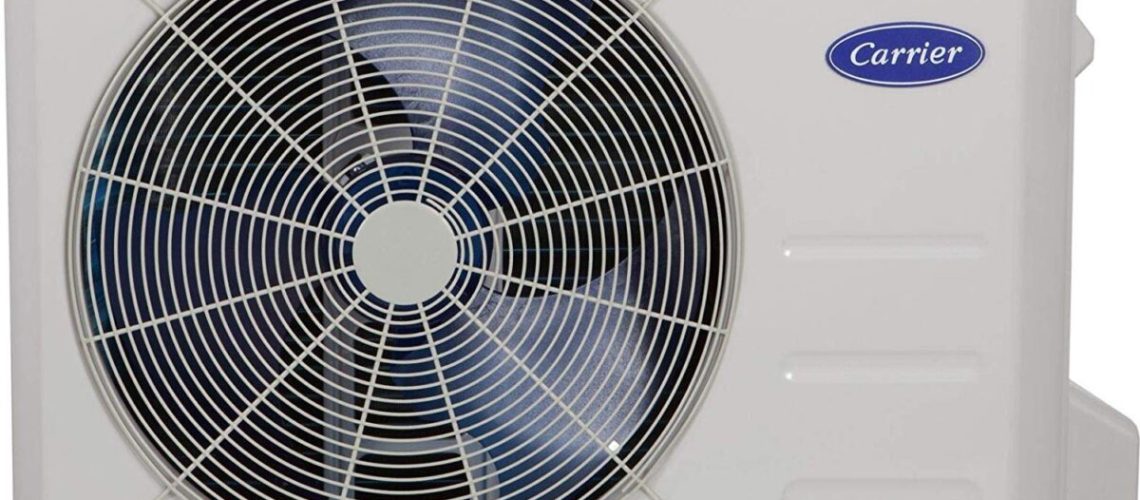The Canadian Climate Institute released a report that details how to unlock lower-cost heating and cooling in Canada, outlines barriers to adoption, and makes recommendations for streamlining the loan and grant application process.
Heat pumps are a way to heat and cool homes with electricity, and offer near zero emissions when powered by solar or other clean sources of energy, according to the International Energy Agency (IEA). The IEA further contends that they result in lower emissions even where electricity is generated by an emissions-intensive source. They can replace oil or gas furnaces, or in very cold climates, households may choose to retain their legacy heating system—just in case. However, recent advances in heat pump technology had made them much more efficient in cold climates, with the leading manufacturers announcing models designed for cold climates that do not need a backup heat source.
Canada, which has extremes of both cold and hot temperatures, has a goal of cutting emissions by at least 40% to 45% below 2005 levels by 2030 and it passed the Canadian Net-Zero Emissions Accountability Act in June 2021, which calls for a net-zero target by 2050.
A recent report by the Canadian Climate Institute, Heat pumps pay off, states that Canadians are not embracing heat pumps in a way that is consistent with moving toward emissions targets. The report contends that Canadian households need more clarity on costs as well as government policy in order to speed adoption.
Researchers at the Canadian Climate Institute assessed lifetime costs of different heating and cooling combinations in different ages and types of housing across five Canadian cities to determine how heat pumps compare to the common combination of gas heating and air conditioning. They concluded that a heat pump is the lowest-cost option for most households over the lifetime of the system; however, barriers such as high upfront costs, lack of consumer confidence, the complexity of government rebate and loan programs, and the fact that residents usually have to own their own homes in order to benefit from some of the programs, thus eliminating renters, low-income households and others.
Five findings from the report:
- Heat pumps are the lowest-cost option for most households.
- The biggest drivers of differing cost competitiveness are regional energy prices and climate conditions.
- Policy and programming support the cost competitiveness of heat pumps.
- In most cases, the cheapest backup for heat pump heating is electric, not gas.
- Provincial and municipal governments should require non-polluting and high-efficiency heating and cooling in new buildings in regions where the all-electric heating scenario is already the lowest-cost option, to avoid creating lock-in of fossil infrastructure and equipment.
Standard heat pumps, as opposed to cold climate heat pumps, were found to be the lowest-cost option for single, detached homes, regardless of the age of the home. For example, the report states that “whether a single-detached house in Montreal was built in 1940 or 2023, heat pumps with electric backup are consistently lower-cost than gas-fired heating with air conditioning”.
Cold climate heat pumps with backup, however, are a costlier option than standard heat pumps. But the report contends that as technologies improve, their upfront costs will fall to be more in line with standard systems.
Barriers to adoption
The report concludes that barriers to adoption include economic, behavioral, and structural barriers. For example, upfront costs can be high, but many people are also reluctant to invest in a new technology. The report authors are optimistic that these barriers will resolve as the heat pump market matures; however, they indicate that the time is now to embrace clean technology. Rather than “locking in another generation of fossil fuel heating equipment,” the authors state that the next few years are a “window of opportunity” to upgrade homes and decarbonize the building stock.
Navigating complex policies
The many programs in place to help Canadian residents decarbonize their households are too complex and “create a substantial administrative burden for households,” the report states. For example to apply for Greener Homes grant and loan programs, home energy audits are required, and households must pay for them without knowing whether they’ll qualify for a grant or loan. The result is that application rates are lagging by one-third of those needed to meet program targets. The report makes several recommendations for enhancing policies, including the suggestion that the government maintain the schedule of planned carbon price increases. It also recommends that it’s important to maintain the existing financial support even as heat pump adoption accelerates—at least in the near term—conceding they may be able to sunset some programming as the market matures and costs fall. A final recommendation is to maintain support for lower-income households.



